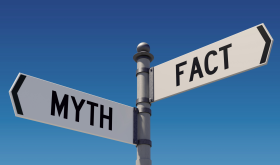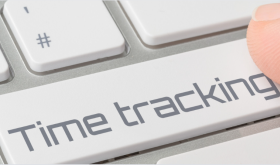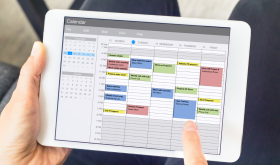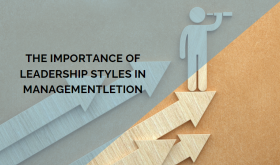Email primarily consists of other people’s priorities and can typically be deferred for some time. There should be nothing in your inbox overnight that has the power to disrupt the rhythm of your following morning. Rather focusing on the priority of tasks means your most difficult of tasks is dealt with a clear mind, and full energy.
This is What the Experts Say
Forbes asked Successful Entrepreneurs what their daily routines were. The answers varied in activities from exercise, meditation, journaling, to engaging in creative pursuits. Many of the respondents were deliberate in how they utilised their initial hours after waking, while a few mentioned checking their email.
The act of checking email often gives us a sense of productivity because it registers in our minds as a task related to work. However, it’s more appropriate to categorise it as a distraction, similar to social media, reading the news, or engaging in idle chit-chat with colleagues.
Harvard Business Review explains how an email can derail you from your daily tasks in the morning:
“This is the time to do focused, strategic work and have important conversations. If you read your email as you get up, your mind will get sidetracked and you’ll begin the slide toward reactive leadership.
Not only does checking and responding to emails early in the morning replace the opportunity for deep, focused work, but even if those emails don’t demand immediate responses, they still occupy a portion of your mental space. Perhaps a team member has proposed something you’re not enthusiastic about, or you’ve been presented with a problem to solve. Your attitude and mindset become influenced, which in turn affects the productivity you had originally planned.
Here are Three Reasons Not to Check Your Email First
1. It’s Not on Your To-Do List
Do you have a clear sense of what’s most important for you to tackle? Do you know the top priority for your morning? If you do, then go ahead and dive into it!
You run the risk of prioritising someone else’s agenda, which means less time is spent on your own tasks and deadlines.
2. It is Better to be Proactive, Rather than Reactive
Often, an email comes in that may add to your already busy day, and how worthwhile is your energy spent when you are reacting to tasks? Rather set a structured to-do list and set the time aside needed for that task. You are proactive and giving the energy to complete the task, and respond to the email with a focused mind.
The issue lies in the fact that your brain is not naturally wired to simultaneously concentrate many tasks. Neurological science has illustrated that the human brain is incapable of effectively focusing on two things at the same time. Emails are often about different projects; while you are addressing one issue in the first email, you attempt to quickly “switch lanes” to the next email that is on a completely different subject.
3. Emails Cannot be Addresses in a Set Time
While most meetings could have been an email, they usually last a set amount of time- making budgeting for them in your day that much easier. Often, you can underestimate how long emails will take to reply to. The main issue is, reading the email may take a minute, but you risk being sucked in an hour long task. You have a finite amount of productive hours available each day—don’t allow email to entrap you and consume more of your time than you can allocate.
However, We Are Not Saying Never Check Your Emails
Do Check Your Email When You’re Anticipating an Important Response
When you’re expecting crucial emails from clients or other key stakeholders, not checking your inbox can lead to significant project delays and potential misunderstandings. Therefore, it’s advisable to keep your email open while you’re awaiting important correspondence. Additionally, consider configuring special notifications on your mobile device for specific senders, ensuring you receive immediate alerts when they reach out. This approach will help you stay focused and prevent distractions from less important messages.
Do Schedule Time for Email Management
Enhancing productivity often involves scheduling tasks on your calendar and adhering to your plan. Just as you allocate time for meetings and events, reserve a specific block of time each day for checking and responding to emails. This practice holds you accountable and allows you to concentrate fully on the task at hand. Moreover, it communicates clear expectations to your colleagues regarding your response time. Overestimate this time when planning, rather give yourself more space to deal with emails, without that time running over into another time slot.
Don’t Let Your Inbox Dictate Your Day
Avoid letting your inbox dominate your time and energy. Instead, employ these strategies to establish an efficient and effective email management routine. You’ll appreciate the benefits in the long run.
Do Utilise the 2-Minute Rule for Quick Email Skimming
If you’re concerned about potentially missing urgent requests or messages from your superiors by not constantly checking your inbox, consider employing the “2-minute” rule when reviewing your emails in the morning. This approach is based on the principles outlined in productivity expert David Allen’s renowned book, “Getting Things Done.”
Take a quick look through your inbox and identify emails that demand immediate responses or can be easily addressed within two minutes. If you can promptly craft a reply for these messages, go ahead and send them right away. Remember, this doesn’t mean you should respond to every email that can be handled within two minutes. Focus on messages that pertain to important individuals within the organisation. For other matters, allocate them time later in the day when you have more availability.
To Conclude
Effective email management is all about striking a balance between staying responsive to important communications and safeguarding your productivity. By anticipating critical responses, scheduling dedicated email time, and using efficient strategies like the 2-minute rule, you can master your inbox without letting it control your day. Ultimately, this approach allows you to remain focused on your high-priority tasks.









